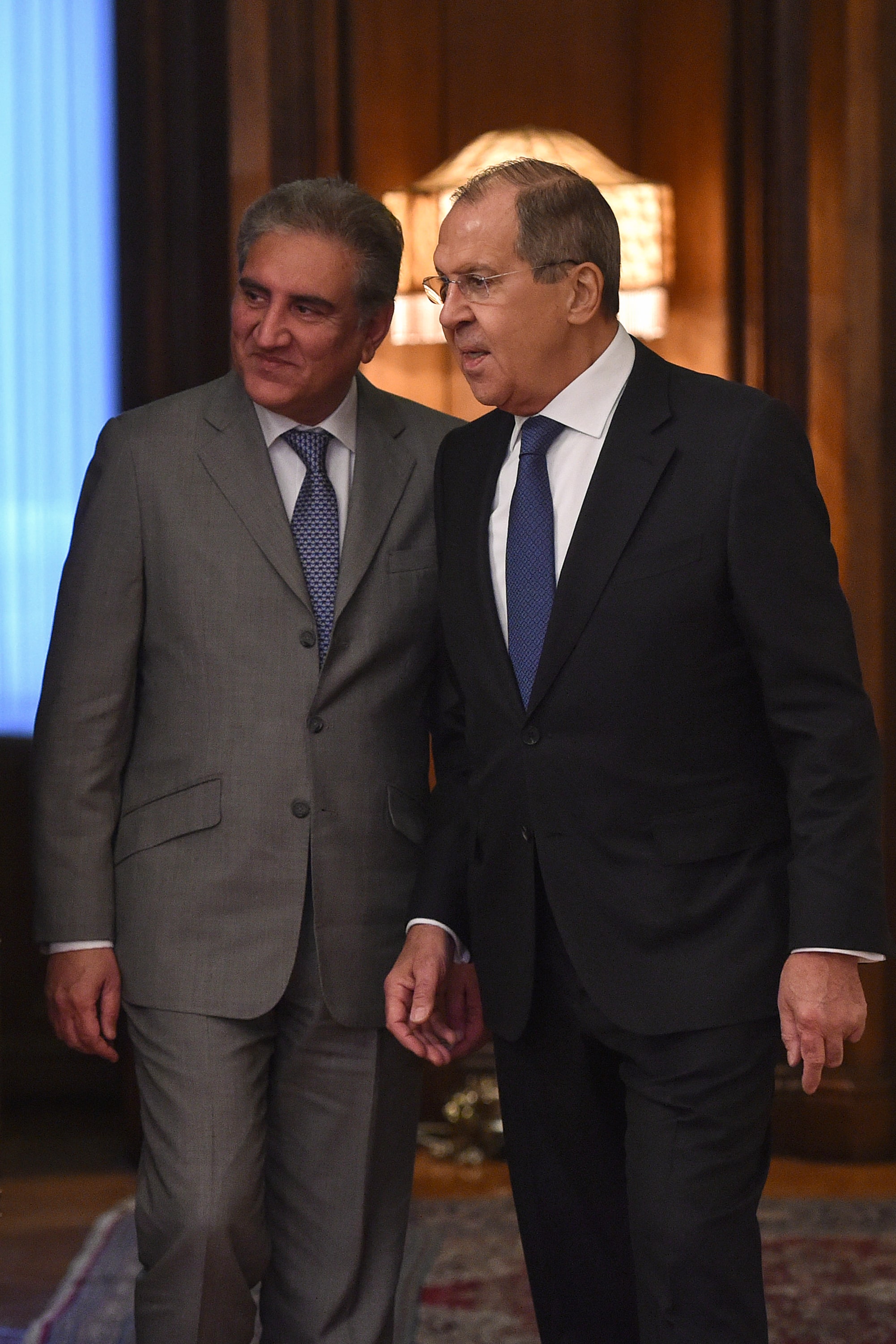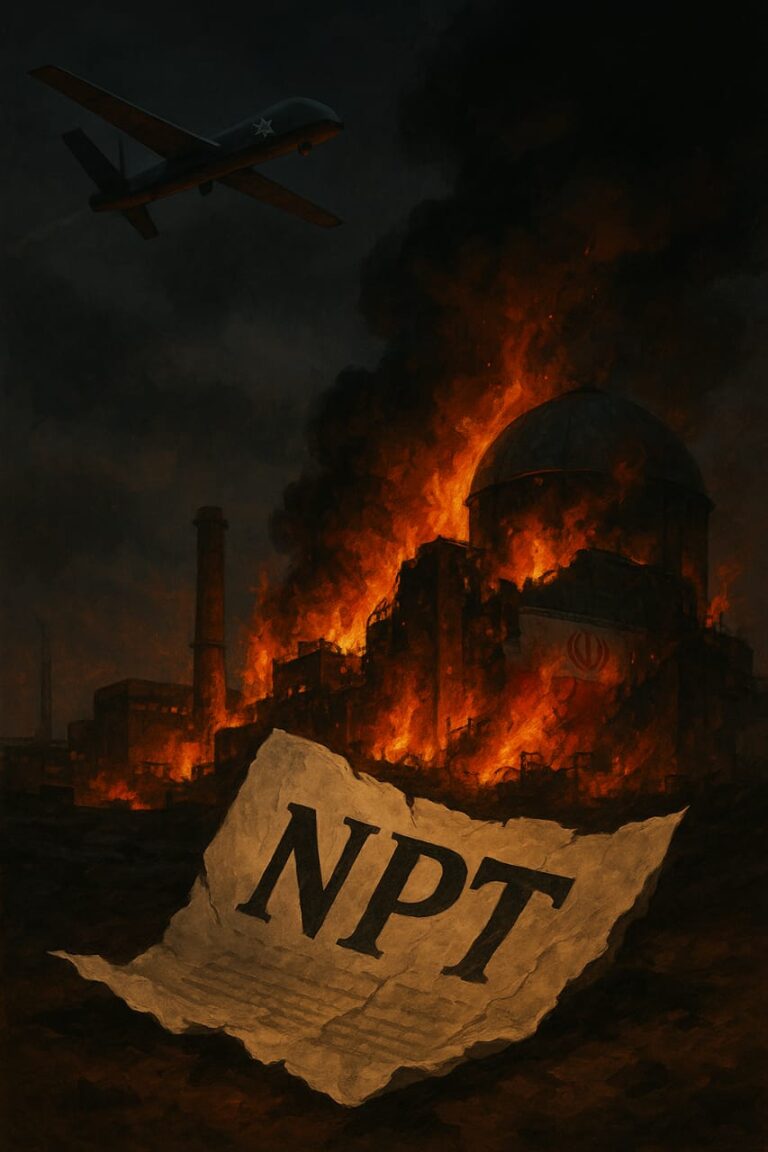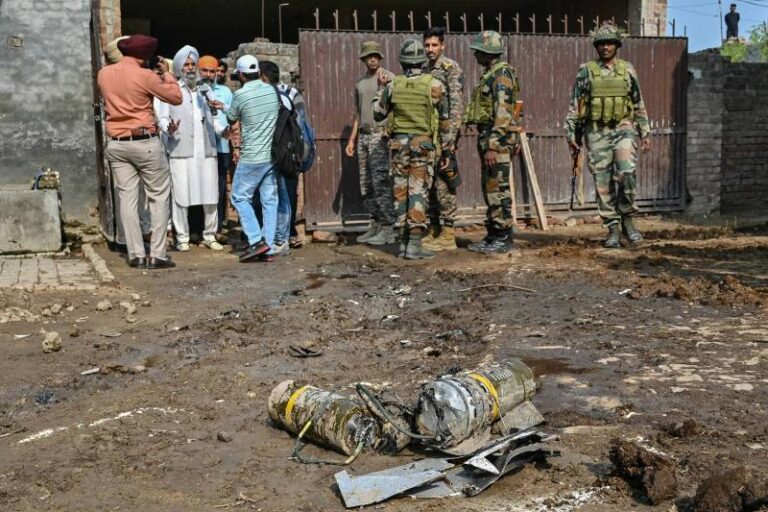
Source: AFP
Andrew Korybko
The Valdai Club, Russia’s most prestigious think tank, published a thought-provoking and visionary piece on Russian-Pakistani relations in the aftermath of the Pulwama attack and the latest round of Indo-Pak hostilities that it provoked.
One of the most profound geopolitical consequences of the Pulwama attack and the latest round of Indo-Pak hostilities that it provoked is that Russia emerged as a non-partisan player interested in “balancing” between both South Asian Great Powers. Foreign Minister Lavrov’s mediation offer proved that Russia is no longer taking India’s side like it has historically done.
I had forecast this groundbreaking development in my assessment on Russia Officially Returns To South Asia. I am now seconded by Oleg Barabanov – a programme director at the Valdai Club (Russia’s most prestigious think tank), a professor at the Moscow State Institute of International Relations (MGIMO, which is run by the Ministry of Foreign Affairs), and a professor at the Russian Academy of Sciences – who in his thought-provoking and visionary piece on Russia’s new approach to South Asia and its specific relations with Pakistan maintains the Russia is emerging as the new balancer between India and Pakistan.
Barabanov shares some unique insight that deserves to be reported on, interpreted, constructively critiqued, and built upon. To begin with, he laments that the Shanghai Cooperation Organization (SCO) did not stop the hostilities from commencing, warning that the latest tensions represent a dual test “of the organization’s solidity and efficacy” and also of “whether the accession of India and Pakistan was justified.” He is of the view that the SCO’s trust-building and dispute-resolution mechanisms that were used during the old Cold War between the USSR and China, and subsequently between the former Soviet Republics and the People’s Republic after 1991, can be of relevance to India and Pakistan as well. This hints at a desire to see the bloc multilaterally facilitate a solution to their problems and presumably also the core issue of Kashmir too. This could prospectively involve Russia and China exerting positive peacemaking influence on their traditional Indian and Pakistani partners, respectively. This might be an overly optimistic scenario because it overlooks India’s refusal to abide by the UNSC’s extant multilateralization of the Kashmir Conflict and does not account for the historical differences of this issue when compared to the broader ones between the former Soviet Republics and China. Barabanov might have also implicitly recognized this, and that might be why he used the milestone of Pakistan’s 2015 SCO membership as a lead-in to talking about Russian-Pakistani relations.
Channeling the constructivist theory of International Relations, the programme director opines about the importance of perceptions in shaping Russia’s relations with India and Pakistan, reminding the reader about how positively the former is regarded in his homeland as compared to the latter. That, however, is changing, as he mentions how Russia and Pakistan are now cooperating on Afghanistan, partaking in yearly joint anti-terrorist exercises and now most recently the Aman multilateral naval drills, and “the expert dialogue between their think tanks is gaining momentum”. The last-mentioned point might even hint at the interest of his host institution, the Valdai Club, to expand its professional contacts in Pakistan, too. One of the reasons for this might be Barabanov’s visionary thinking about how bilateral ties could take on a multilateral continental importance if CPEC is extended to Russia and ultimately connect the Arctic Ocean with the Arabian Sea via a “trans-Eurasian meridian network” that corresponds with the CPEC+ model that I also elaborated upon in my piece on “Pakistan: The Global Pivot State”.
Barabanov then describes how the US’ geostrategic ambitions in the Indo-Pacific could destabilize this broader region but paradoxically “serve as an additional external impetus for Russia-Pakistan dialogue”, especially if some in the Indian expert community continue to “express mistrust of Russia because of what they consider the excessively close Russia-China partnership”. Barabanov notes that this Indian misperception has led to Russia “losing its independent political image in India”, remarking that “viewing Russia exclusively through the prism of Indo-Chinese divergences does not promote trust.” While India’s trust in Russia is declining, Russia’s trust in Pakistan could increase as a potential counterbalance to this trend if both sides “conduct purposeful and fairly sensitive work, learn to hear each other and openly discuss complicated historical problems without bias and look for ways to overcome them.” He predicts that this effort to “promote mutual public confidence” and “develop bilateral people-to-people ties and exchanges” will also be greatly aided by Prime Minister Imran Khan’s recent initiative to open up the country’s tourism industry.
While concluding his article, Barabanov envisages that Russia could use the SCO as its platform for “balancing” between India and Pakistan via a much larger expansion of the approach that it is currently employing between Armenia and Azerbaijan on a bilateral basis or even in Syria between the various external parties to the conflict.
In the Indo-Pak context, Russia and Pakistan must first prioritize expert coordination at the think tank level. People-to-people ties need to be in order to “create a mutual positive image in the public opinion of the two countries” that could succeed in reshaping outdated views to accurately reflect new geostrategic realities.
I have elsewhere written that both Russia and Pakistan should follow China’s footsteps by building Friendship Centers in each other’s countries that could serve as multifunctional platforms for comprehensively enhancing the strategic partnership that both sides later officially declared their intent to eventually achieve in November of last year. In parallel with this, their think tanks should expand cooperation with one another. As for the “public diplomacy” dimension of their strategic partnership, it would be helpful if the publicly funded Pakistan Television Corporation (PTV) enters into partnership with its international and domestic Russian counterparts of RT and Rossiya-1 respectively to create documentaries on CPEC and Russia’s Muslim heritage, as well as host programs on the Afghan War. The last-mentioned point could be framed as “then vs. now” or “from rivals to partners” to fulfill Barabanov’s suggestion that they “openly discuss complicated historical problems without bias and look for ways to overcome them.”
It can be confidently predicted that Russian-Pakistani relations will rapidly grow in the aftermath of the Pulwama attack and the Indo-Pak tensions that they provoked as Moscow seeks to spread its “balancing” model to South Asia. Russia aims to counter not only the negative influence that the US is currently exerting on India but also the zero-sum prism of “Indo-Chinese divergences” through which some in New Delhi view Russo-Indian relations. It can also not be overlooked just how unprecedented it is that a think tank as prestigious as the Valdai Club would publish such a forward-looking policy proposal by an expert as prestigious as Barabanov about how Russia must prioritize its relations with Pakistan in order to strike a balance between its new ties with Islamabad and its decades-old one with New Delhi. This is the strongest signal yet of just how serious Russia is about its strategic partnership with Pakistan and should definitely be reciprocated by the Pakistani side as soon as possible.
Andrew Korybko is a Moscow-based journalist and geopolitical analyst.
DISCLAIMER: The author writes for this publication in a private capacity which is unrepresentative of anyone or any organization except for his own personal views. Nothing written by the author should ever be conflated with the editorial views or official positions of any other media outlet or institution.




